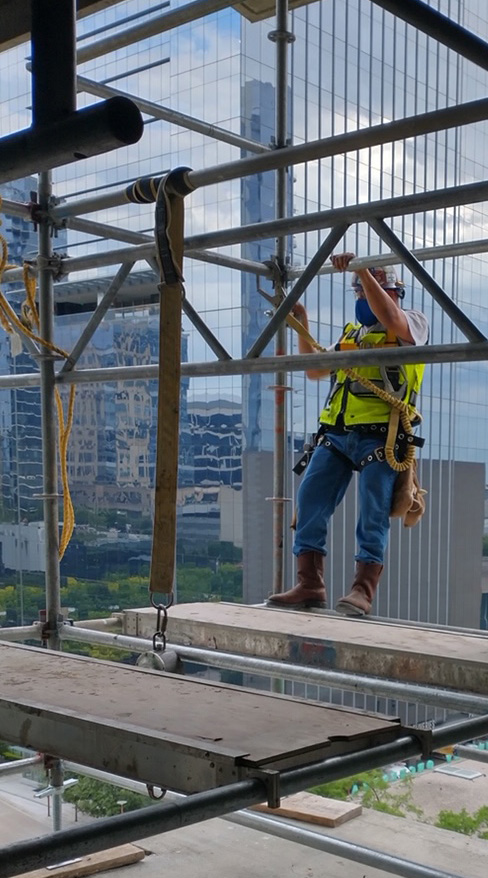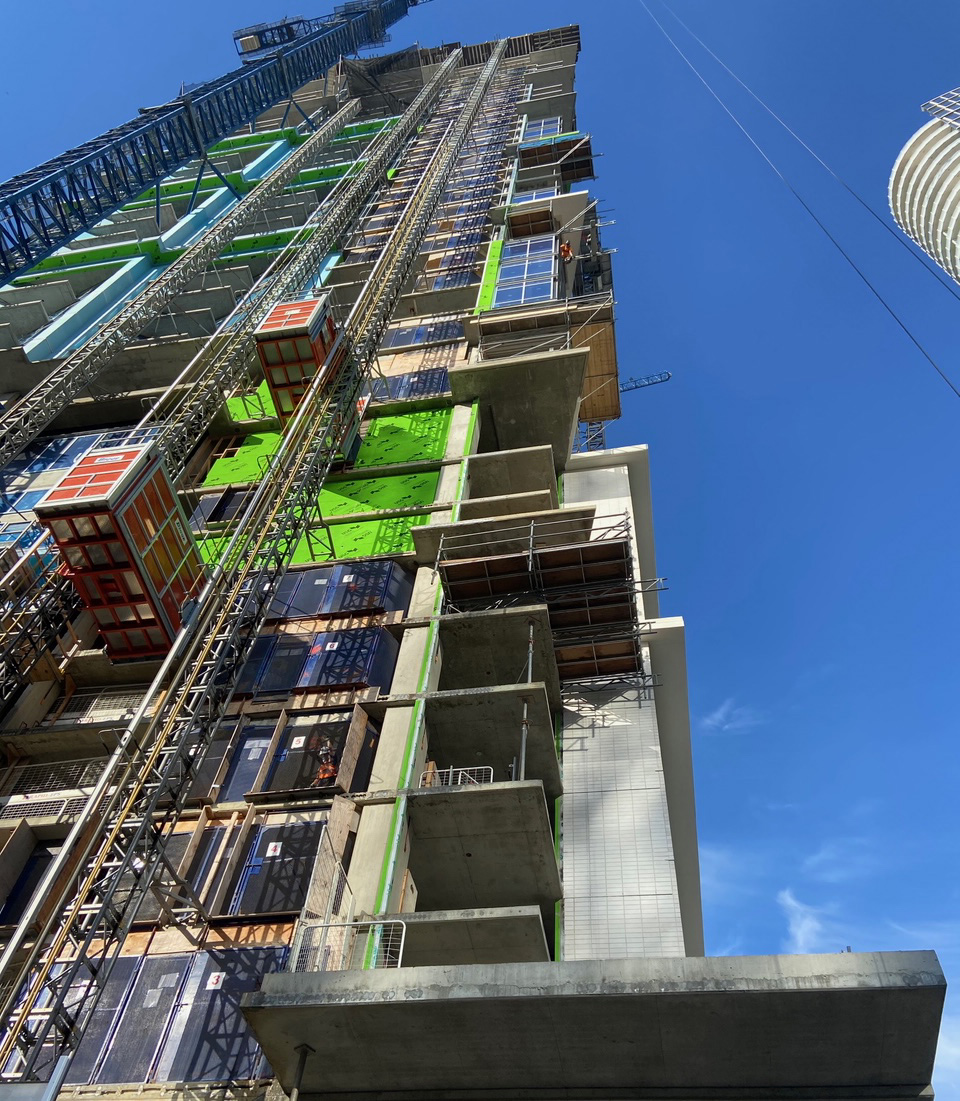While safety is a priority on any job site, the 41-story Atelier luxury high-rise residential tower in Dallas provided some particularly lofty challenges.
Before crews ever set foot on the site, procedures and training were developed, so each individual understood the inherent safety risks of working at such extreme heights. It was crucial every team member was given the tools and knowledge to remain safe while working on the towering project.
The mixed‐use development is the tallest residential rental tower in the Dallas area with 364 residences offering sweeping views of downtown Dallas. KHS&S’ work scope included the exterior EIFS plastering.
Exterior mast climbers, mounted to the building, were essential to reach heights up to 360 feet. The motorized platforms were seven feet wide and 30 feet long, accommodating up to six people working side-by-side.
Operated by a control motor, the platform deck moved up and down along tracks covering 13-story sections. The motor operators were trained by the mast climber manufacturer on operations and safety of the equipment. Up to 17 mast climbers could be in operation during a single day.
Each crew member tied off using a harness and Self Retracting Lifeline (SRL) clasped to a cable running horizontally across the platform deck.
Teams moved up the exterior wall completing one floor at a time. Materials were staged every three to five floors so the platform could be restocked. Base coat, mesh, foam and bucket goods were passed out from balconies to the platform – with interior restocking crews also harnessed for safety. Below the climbers, red tape zones prevented other trades from working near the KHS&S platforms.
Mitigating Risk with Comprehensive Safety Planning
The all-inclusive safety plan developed by KHS&S risk management personnel, in conjunction with the construction team, was continually reinforced. The project supervisor and plaster foreman conducted daily safety huddles with up to 30 crew members re-emphasizing the importance of being tied off, tethering tools and red taping work areas. Specific scenarios for the day were also addressed such as weather or other delays. Safety glasses, gloves and hard hats were mandatory.
Leading by example, a 2-hour weekly job site walk was conducted with all trades by the KHS&S OSHA-certified safety director to keep safety at the forefront. While KHS&S held the contract for the mast climbers, other trades used the equipment for framing and sheetrock. For KHS&S to complete the EIFS work, the teams were dependent on the “trade in front” to complete its piece of the project. Educated on how to recognize, avoid and prevent unsafe conditions, KHS&S inspected the platforms daily to ensure the mast climbers were not damaged or compromised and met KHS&S’ stringent safety standards.
A comprehensive safety plan takes weather conditions into consideration to ensure the well-being of crews. With temperatures reaching a scorching 100 degrees on many days, water stations were placed throughout the project for ongoing hydration. Work was stopped during rain and if winds exceeded 30 mph.
These and other construction safety measures are part of the planning, monitoring and controlling of risk on every job site. KHS&S has distinguished itself as a leader in job safety, even when the risks are elevated, so that each person is trained to make better, smarter and safer decisions.


